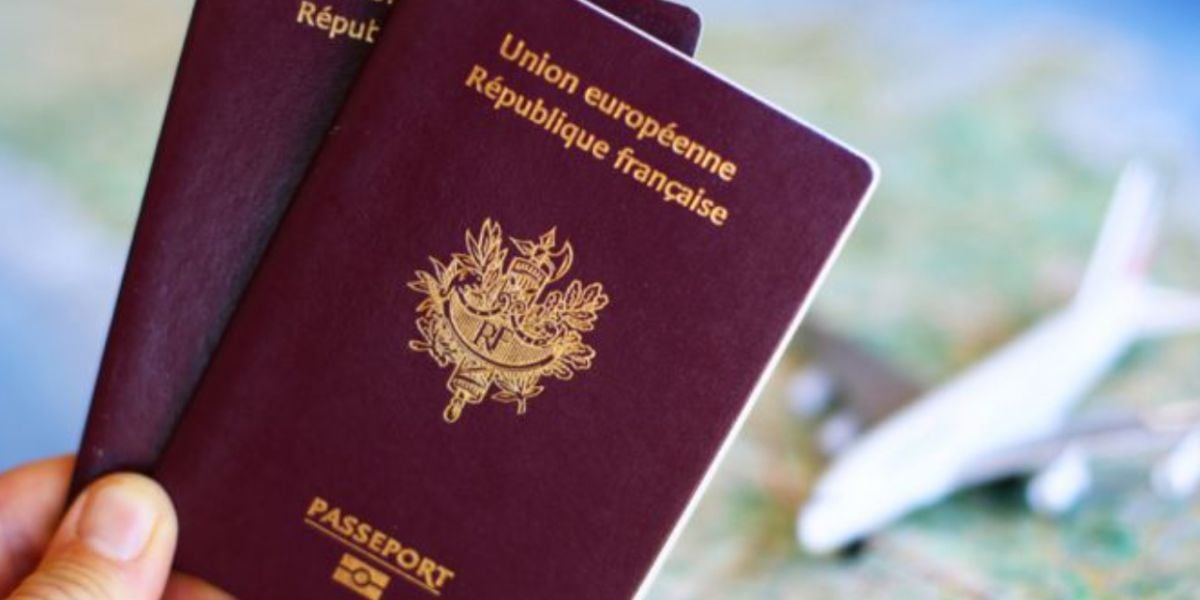
Foreign citizens typically require a visa to visit France, whether for relocation or a short-term stay, unless they are from the European Union (EU), the European Economic Area (EEA), or Switzerland. Are you curious about the types of visas available? This article outlines them.

First thing to know: to quickly determine whether you'll need a visa to travel to France, you can use the Visa Wizard on the official French government website. You will need a visa for France if:
- you are a citizen of a country that is not a member of the EU, the EEA, or Switzerland;
- you are not a citizen but a family member of an EU, EEA, or Swiss national.
Visa for France: short stay or long stay?
There are two main categories of visas for entering France: short-stay visas and long-stay visas, in addition to airport transit visas. These categories are further divided into several sub-categories, such as long-stay visas for students or French spouses and short-stay visas for family visits or tourism.
The first step is to determine the type of visa that best suits your needs based on the duration and purpose of your stay in France.
In all cases, it is important to note that:
- you will need a short-stay visa if you intend to stay in the country for a maximum of 90 days;
- you'll need a long-stay visa if you plan to stay longer than 90 days or settle in the country.
Good to know:
Please note that rules may vary for French overseas territories. Therefore, it's important to specify your exact destination when applying for a visa to France.
Different types of visas for France
Long-stay visa with residence permit (VLS-TS)
You can stay in France for more than 3 months with this visa. Once you're in the country, it serves as a temporary residence permit for a specified period, typically one year. There will be no need to apply for an additional residence permit during this time.
Student visa
This visa is designed for foreign students wishing to study at a higher education institution in France. It is valid for the duration of the study program. The visa offers significant benefits, including free travel across all Schengen countries and the right to work up to 964 hours per year (or 20 hours per week). Students can also access VISALE, a free rental deposit guarantee, and receive housing assistance from CAF (the French family allowance service).
Additionally, there is a temporary long-stay visa (VLS-T "étudiant") for students enrolling in a public or private higher education institution in France for four to twelve months. This visa does not require validation by the prefecture upon arrival and involves no formalities during its validity period. However, it is non-renewable and only serves as a residence permit for the specified duration. Holders of this visa do not have the right to work, access VISALE benefits, or receive housing assistance from CAF.
Lastly, there is also a short-stay visa option available for students.
Please note that the immigration law enacted on January 26, 2024 does not alter the situation of foreign students.
Temporary worker visa
This visa is intended for foreigners who have been offered a job in France and wish to work there for a fixed period.
Private and family life visa
This visa is intended for people who are joining their spouse, parents, or children already living in France or for those who wish to settle in France with a French family member.
Scientific-researcher visa
This visa is intended for researchers, teachers, or scientists coming to work in research or higher education institutions in France.
Retired visa
It is intended for foreign retirees wishing to reside in France.
Visitor visa
This visa is intended for people coming to France for family visits, tourism, or other temporary stays.
Each category of long-stay visa has specific criteria, eligibility requirements, and required documents for the application process. It's essential to verify these details with the French embassy in your country of residence or consult the official website of the French Ministry of Foreign Affairs for the most current visa application procedures. Remember that visa policies and requirements can undergo changes, so staying informed with the latest information before submitting your application is recommended.
Short-stay visa: “Schengen” visa
The short-stay visa for France is intended for people wishing to stay less than 3 months (90 days) for tourism, business travel, or a visit to a family member. This visa is also issued for short training courses, internships and conferences, company meetings, and paid employment.
If you are eligible for a short-stay visa for France, you will also be authorized to travel freely throughout the Schengen area for a maximum of 90 days within 180 days.
Frequent travelers to France, such as those who make multiple short stays annually, may qualify for a multiple-entry visa, known as a “circulation visa”, under specific conditions. This visa is valid for periods ranging from 6 months to 5 years, depending on the traveler's requirements, and allows unlimited entries into France. However, each stay must not exceed a total of 90 days within any 180 days. It's important to note that the immigration law enacted on January 26 may amend certain provisions of the Schengen short-stay visa. For more details, please refer to information provided by the Public Service.
Long-stay visa
The long-stay visa for France is designed for individuals intending to stay in the country for more than 3 months (90 days), whether for relocation, study, or other purposes. This visa is usually valid for a period ranging from 3 months to 1 year. If you plan to stay longer than the initial validity period, you'll need to apply for a residence permit from the Prefecture.
This visa allows you to stay longer for tourist or private reasons, to work, study, train, or do an internship, or to join one or more family members.
There are two main types of long-stay visas, and the one that corresponds to the duration and purpose of your stay/settlement in France will be issued accordingly.
Good to know:
Under the “Talent Passport” scheme, visas may lead to the issuance of a residence permit valid for several years.
Visa application formalities for France
France is known for its complex administrative procedures and lengthy processing times. The French government is striving to streamline visa applications by allowing most procedures to be completed online. However, French authorities maintain strict standards: any unofficial or incomplete document could lead to the rejection of your visa application. Therefore, it's crucial to diligently prepare your visa application.
The documents required to apply for a visa to France may vary depending on the type of visa you are applying for and your situation. However, here is a general list of documents commonly required to apply for a long-stay visa in France:
- visa application form: complete and sign the visa application form (the Schengen visa form, also known as the national visa application form);
- photograph: provide photographs that comply with visa standards (generally 3.5 cm x 4.5 cm) with a light background;
- passport: your current passport, valid for at least three months after the date of departure from France, with at least two blank pages;
- copy of passport: provide a copy of all pages of your passport, including pages with visas and entry/exit stamps;
- justification of the reason for the application: specific documents depending on the type of visa, such as a letter of acceptance from a university for a student visa, an employment certificate for a work visa, a marriage certificate for a family reunion visa, etc.;
- proof of means of subsistence: documents showing that you have sufficient financial means to support yourself during your stay in France, such as bank statements, pay slips, a letter of guarantee, etc.;
- travel insurance: a certificate of travel medical insurance covering the entire period of stay in France, with minimum coverage of 30,000 euros for emergency medical expenses and repatriation;
- proof of accommodation: documents confirming your accommodation in France, such as a letter of invitation from a host, a hotel reservation, or a rental contract;
- travel itinerary: a copy of your plane or train reservations indicating your dates of entry to and departure from France;
- proof of links with your country of origin: documents showing your links with your country of origin, such as a certificate of employment, proof of current studies, family ties, property, etc. This will enable you to prove that you have reasons to return to your country of origin after your stay in France. This helps to prove that you have reasons to return to your country after your stay in France.
Good to know:
Other documents may be required for students. The list must be confirmed with the French authorities in their country of origin.
Visa for France: the different stages of the application process
The procedure for applying for a visa to France can be broken down into five main stages.
Firstly, you should determine whether you need a visa by visiting the France Visas portal. This will provide you with a list of required supporting documents and the associated fees for your application. If you have recently been in the Schengen area, there is a calculator available to help you determine the remaining maximum duration of your stay.
The next step is to fill out the visa application form and gather all required documents and supporting evidence. If your country is eligible, you can complete the application online through the France Visa website. To do so, you'll need to create a personal account using your email address to save and finalize your form. Once completed, you can print it and schedule an appointment to submit your complete application to the French embassy or its designated service provider. If your country is not eligible, please contact your embassy or consulate for application instructions.
The next step is to schedule an appointment at the visa center. Depending on your specific situation, it is recommended that you book this meeting well in advance of your trip, typically between 3 months and 15 days beforehand.
Next, you will need to submit your complete application and provide your biometric data, which includes a photo (taken on-site or provided by you) and the digitization of your ten fingerprints. If you have previously been issued a Schengen visa, you may be exempt from providing biometric data again.
Finally, the last step in the process is to track your application and collect your passport once your application has been accepted and your visa issued. The waiting time is generally 15 days. If more in-depth examinations are required, it can take up to 45 days. You will receive a notification. In some countries, the passport can be returned by post.
Good to know:
Documents written in languages other than French and English must be translated into French.
Useful links:
Public services – Long-stay visas
We do our best to provide accurate and up to date information. However, if you have noticed any inaccuracies in this article, please let us know in the comments section below.








